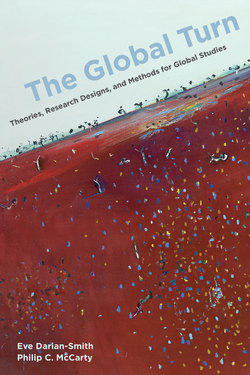The Global Turn

Реклама. ООО «ЛитРес», ИНН: 7719571260.
Оглавление
Eve Darian-Smith. The Global Turn
Отрывок из книги
“We have been waiting for a book that would investigate the full impact of globalization on the social sciences and humanities. Here it is.”—Boaventura de Sousa Santos, author of Epistemologies of the South: Justice against Epistemicide
“More than a manual of methodologies, this innovative book is a reflection on the emerging field of Global Studies—what it is, what it can do, and how it can do it. It’s an important book, one that will be widely used and discussed. It provides pathways for research for anyone working on issues related to our increasingly global milieu.”—Mark Juergensmeyer, editor of Thinking Globally: A Global Studies Reader
.....
In the United Kingdom Richard Hoggart and Stuart Hall established Cultural Studies at the University of Birmingham in 1964 in an explicit attempt to grapple with issues of race, class, and power. Heavily influenced by socialist and Marxist thought, these social theorists and historians began exporting their critical interdisciplinary ideas to the United States, where cultural studies blossomed in the 1980s. At approximately the same time, postcolonial and subaltern studies began to flourish. These fields pushed Western scholars to interrogate their essentialist cultural assumptions and view the history of the world from a bottom-up perspective that foregrounded the experiences of non-European peoples and their often very different readings of the past. While many of these conversations were marginalized on university campuses, they nonetheless opened up intellectual space within the Euro-American academy to develop critical perspectives and foster alternative epistemological positions (see however Spivak 2003; Chow 2006).
The cross-pollination of ideas between these various interdisciplinary programs cultivated a wide range of ideas about subjectivity, identity, governmentality, postcoloniality, and so on. As we discuss in Chapter 3, the concept of transdisciplinarity, coined by Jean Piaget in 1970, encapsulates these dynamic theoretical exchanges within and between the global north and the global south in the second half of the twentieth century (Piaget 1972). These exchanges informed a new set of thematics that transcended disciplinary thinking and that have reshaped conventional disciplines within the academy over the past three decades. Transdisciplinarity provides the theoretical platform upon which global studies as a new field of inclusive inquiry is currently building.
.....